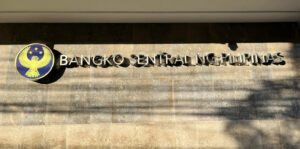FSCC keeps eye on potential spillovers from global uncertainties
THE FINANCIAL STABILITY Coordination Council (FSCC) is keeping a close eye on the possible spillover effects from global developments, Bangko Sentral ng Pilipinas (BSP) Governor Eli M. Remolona, Jr. said. In a statement, Mr. Remolona, who is also FSCC chairman, said uncertainties in advanced economies were “likely to affect the Philippines in different ways.” “While […]

THE FINANCIAL STABILITY Coordination Council (FSCC) is keeping a close eye on the possible spillover effects from global developments, Bangko Sentral ng Pilipinas (BSP) Governor Eli M. Remolona, Jr. said.
In a statement, Mr. Remolona, who is also FSCC chairman, said uncertainties in advanced economies were “likely to affect the Philippines in different ways.”
“While global markets have been very fluid, the Philippines has shown its resilience by expanding at a pace that exceeds that of most other economies in the world,” he said. “The FSCC recognizes that expectations at the end of 2023 of early rate cuts by the US Federal Reserve have been tempered by recent US data.”
“That said, the council weighs the potential spillovers coming from abroad versus the resilience that the local market continues to exhibit,” he added.
In February, the US Federal Open Market Committee kept interest rates steady for the fourth straight meeting. From March 2022 to July 2023, the Fed raised borrowing costs by 525 basis points (bps) to bring the target Fed fund rate to 5.25-5.5%.
In its Financial Stability Report released last month, the FSCC said the US central bank was unlikely to cut key rates soon and would likely keep policy rates elevated for longer than expected.
Markets widely expect the BSP to only begin policy easing after the Fed starts to cut rates.
The Monetary Board kept its benchmark rate steady at a near 17-year high of 6.5% for a third straight meeting in February.
From May 2022 to October 2023, the BSP raised rates by 450 bps. The Monetary Board is set to hold its next policy meeting on April 4.
Meanwhile, the FSCC said estimates show that a “sizable” portion of corporate bonds and loans would mature this year.
“Given the nature of these debts, the FSCC expects a significant amount to be refinanced,” it said.
“The council recognizes that the banking sector has been able to provide much of the corporate funding through the years. However, the FSCC also looks to a stronger capital market to complement the banking sector and to better manage various risks,” it added.
The report showed that while outstanding corporate bonds have grown “significantly” over the past 15 years. They have remained flat over the past five years.
At end-2023, outstanding corporate bonds stood at P1.55 trillion, lower than P1.6 trillion at end-2022. This was also reflective of the P259.3 billion in maturing bonds.
The FSCC is also seeking to expand the access of Philippine corporations to the bond market.
“Enhancing the capital market is an issue that is shared by all members of the FSCC. We recognize that regulators must take a more proactive role in market development and encourage deliberate collaboration among stakeholders,” Mr. Remolona said.
The FSCC is an interagency council composed of officials of the BSP, Department of Finance, Securities and Exchange Commission, Insurance Commission and Philippine Deposit Insurance Corp. — Luisa Maria Jacinta C. Jocson














